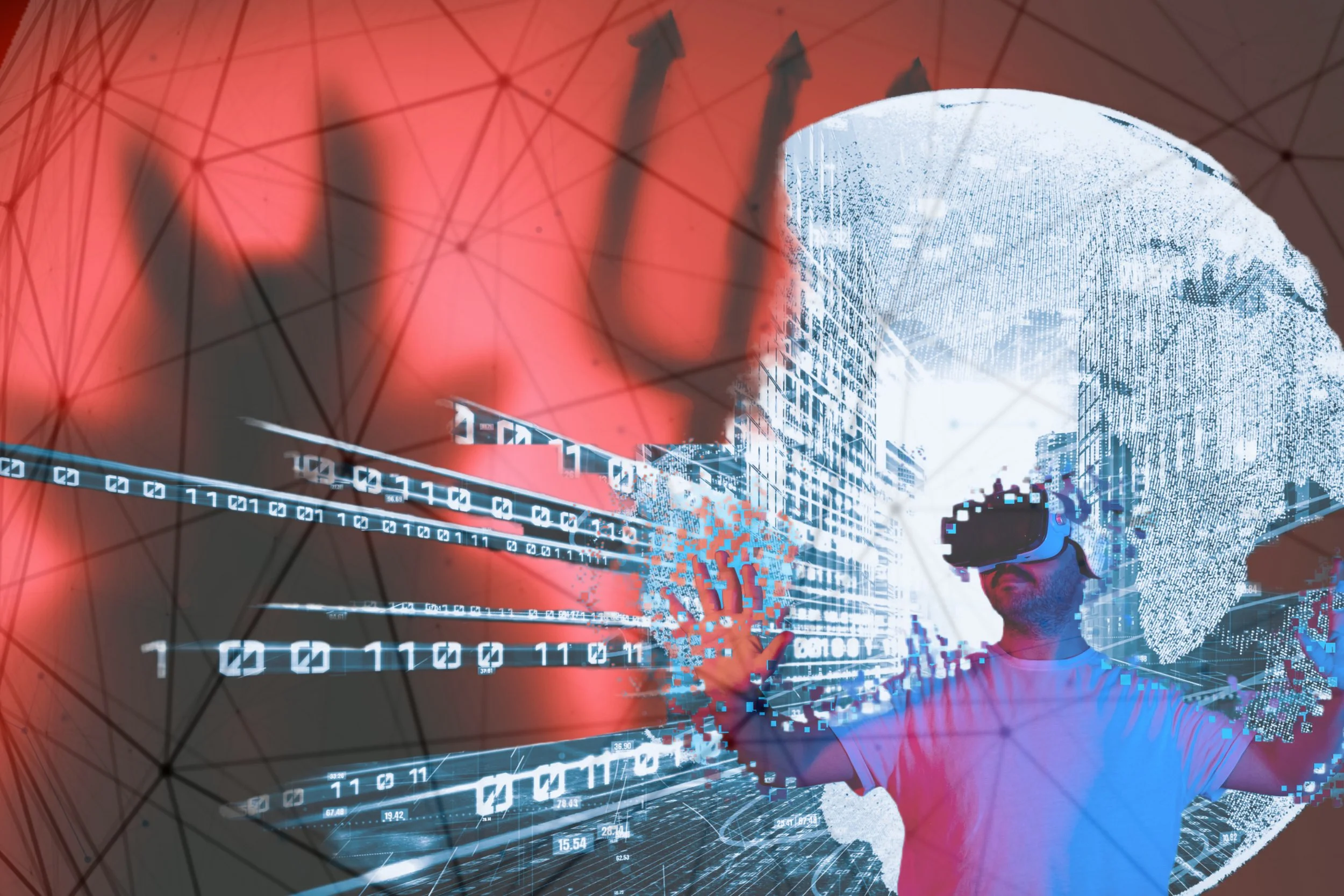Changing the Definition of Decentralization | Web 3.0
Changing the Definition of Decentralization | Web 3.0
Tim O’Connor – Center for the Preservation of Humanity – 7/28/2022
The definitions of words have been changing at a rapid pace. The definition of vaccine was changed. Inflation is being passed off as good for us. What is a mother these days? A boy? Girl. Woman, female? Economists have decided that borrowing money forever is something which can be done under modern money theory….
Another term, decentralization, is being changed as well. The term is still defined as, “the dispersion or distribution of functions and powers; specifically, government : the delegation of power from a central authority to regional and local authorities.” In the United States this idea is how our government is supposed to function (it does not any longer). In the EU, many people and nations which are party to the union are growing increasingly discontent with the body and seek decentralization, much like the British did with Brexit. Generally, this type of decentralization is looked on as a positive because it results in more control over increasingly more localized government.
In sociology, decentralization refers to “the redistribution of population and industry from urban centers to outlying areas.” Basically the term refers to migrations out of cities to the suburbs, and the creation of suburbs in the first place. Mao Zedong’s cultural revolution represents a sociological decentralization as well. This is definitely a mixed bag in terms of positives and negative connotations.
The technological version of the term decentralization has a wide range of applications. Basically it means blockchain technology. With blockchain the idea is based on decentralization – instead of holding information in a centralized server, data is stored on everyone’s individual computer and everyone has a copy of the ledger. When a transaction occurs, all of the ledgers are updated simultaneously, greatly reducing the ability of hackers to siphon funds into their own accounts or to steal data. The transactions can be more or less anonymous, making it difficult for hackers or government agencies, to track transaction to individuals. That description of blockchain given here leaves a lot to be desired, but for our purposes here, it suffices.
Cryptocurrencies operate based on blockchain. Decentralized currencies are, in my opinion, a good thing; however, these will only exist for as long as the central bank in any nation allows them to. China, for instance, has already decided to ban cryptocurrencies. In the place of cryptocurrencies are digital currency which uses blockchain technology but in a centralized format. Instead of distributing the ledgers, the central bank, the distributor of the currency, will hold a (or many) centralized ledger(s).
The Internet of Things, that wonderful idea which has an end goal of smart cities with smart transportation and smart appliances (including smart-chipped people) is supposed to run on blockchain technology too. 5G and 6G communication technologies are supposed to facilitate the hardware requirements for all of those smart chips and facilitate communication between them all – you, your dishwasher, your aerial drone, the bus you are supposed to ride to work and, of course, the digital currency in your bank account.
Another area in which decentralization is being promoted is in the World Wide Web 3.0 (web 3.0). The idea is that users will have as much power as possible, especially over their data and its usage, while online. In web 1.0, the internet was largely decentralized through peer to peer connections. Companies, like Facebook.com, Amazon.com, E-bay.com, and thousands of others centralized the internet – this is referred to as web 2.0 (we currently use this iteration most often). While they did this, they claimed the rights to anything you do on their site. Web 3.0 seeks to use the blockchain in order to once more create a decentralized internet. Decentralizing the internet in this manner would, in theory, give individual users much more control over how their data is used and when. It is not until we dig into some of the details that the truth of the matter comes out.
The main selling points of web 3.0, as written by ZenLedger.com:
“Using the blockchain, users can store encrypted data across thousands of servers. As a result, the data is always accessible (e.g., it's not on a centralized server controlled by a large corporation), and users can choose when to share it with others. These changes could ultimately shift control of data from large corporations back to individuals.[…]”
“Blockchains make transactions more secure by removing intermediaries. For example, individuals enter a payment amount and the seller's public key via a wallet rather than entering a credit card. That way, the seller never requires a credit card number or other personal information that hackers could steal in a data breach.
“Zero-knowledge proofs (ZKPs) could also let individuals prove they meet requirements without providing sensitive information. For instance, imagine a bank confirms a customer's annual income and stores it on a public blockchain. Then, if the customer wants to buy a car, a seller could use a customer's public key to confirm they meet a minimum requirement.[…]”
“The original Web 1.0 was a highly decentralized network of computers sharing information. However, with the rise of Web 2.0, a handful of large corporations began to centralize and monetize that data. Web 3.0 aims to decentralize these networks and bring the power back to individuals while opening the door to a much more exciting internet.”
The ZenLedger.com article continues by highlighting the effects of these selling points. They claim that social media sites would no longer be able to censor users, and ad-targeting would be a thing of the past as well. Payment services will accept a wider variety of methods. They also claim that there will be no more downtime due to websites being down.
Are you sold on web 3? I mean it sounds great. No censorship, anonymity, easy point of sale, it all sounds fantastic. Until we go back up to the overview of “Web 3.0 - The next evolution of the internet will focus on decentralization and democratization, semantically organizing information, and facilitating next-generation technologies like virtual reality and artificial intelligence.” [italics mine]
The much more ‘exciting internet’ mentioned above is referencing the metaverse. Artificial intelligence will be heavily involved in the metaverse as well, as will other applications which are ideal for web 3.0 – foremost of which is the Internet of Things. If we read a bit in between the lines, the idea is to dehumanize humanity by forcing commerce to take place in a virtual world instead of the real world. A lot of these virtual interactions will occur between a human and an artificial intelligence. The artificial intelligence won’t be decentralized, neither will the metaverse itself. At that point it doesn’t matter what you do with your data, it will all be collected by the AI systems running in a metaverse owned by some globalist company. The reality will be neither decentralized nor democratic, it will be monolithic and completely dictatorial.
In the case of web 3.0, decentralization means everyone’s total slavery. It’s a perversion of the word decentralization, straight out of George Orwell’s 1984 – the term doublespeak is spot on. It really does sound good until people realize the way the world actually works and remember that people with power are usually corrupt. As people are increasingly forced to work and play in a virtual reality, they will increasingly give up their birthright permanently by digitizing their consciousness, shedding their ‘meat suits,’ to become a permanent resident of a digital world. That’s the end goal of what web 3.0 is, get rid of physical humanity by offering digitization by convenience at first, then necessity, followed by dictatorial mandate.
In the meantime, those who remain in the real world to produce all of the electricity needed to keep digitized ‘people’ in their metaverses, grow food for those workers and their bosses (people like Bill Gates, Elon Musk, Alexander Soros, and Jeff Bezos), and those needed to serve their bosses so they can maintain the lifestyle they think they deserve in a world depopulated by 90%, will be enslaved. Eventually that digital world, holding millions, maybe billions of former humans will be unplugged. Until the energy is shut off though, those permanently in the metaverse will be slaves to AI, and those in the real world will be the slaves of, what we, today, call, the global elite.
I don’t think God will let it get that far; however, I’m not God. The demons the global elite have invited to run their lives have launched the plan explained above. How do we beat it? Refuse web 3.0. Refuse the Internet of Things. Refuse to be digitized. The most important by far is refuse to reject God. The reason people will accept all of those things is because of convenience, love of the world, and not knowing God. In my assessment, convenience really doesn’t exist anymore – anything being made more convenient these days is actually the selling point of increased control over the life of an individual. Convenience has also fallen into doublespeak.
ZenLedger.com and all the cryptocurrency worshipers should at least attempt to understand how humans operate. Most importantly is the idea that we are all on a war and those who cannot see that we are in a war are going to be among those killed in action, unless they wake up to it. It’s our job to try to get people to understand the danger all of humanity is in. It’s not limited to AI, or virtual reality, or digital currency, but, each represents an existential threat to humanity and, if combined and allowed to be fully implemented, represents a nearly insurmountable obstacle to go around or to put an end to. Individuals who try to go around this new, global, system will simply be marginalized until they can be murdered outright. Only God knows how far along this evil will be able to carry on with their plans, which is why I am always suggesting that my readers read their Bible, know God, know Jesus, and get as close to God as you can….


